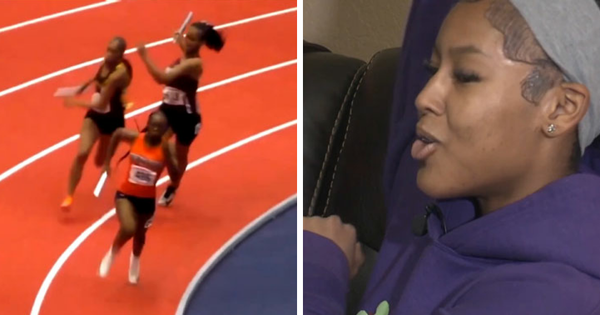
In the final week of last season, Iga Swiatek’s reward for a solid year was a place among the very best at the WTA Finals in Guadalajara. After the highs of winning the French Open late in 2020 and the adjustments she made as her whole world changed, Swiatek had enjoyed a good full season as a champion. But in Mexico she struggled badly. Swiatek lost her first two matches, quickly exiting the event in the group stages.
Back then, it still felt like the improvements needed for her to command the hard courts as she had done clay would take some time. Instead, almost a year later, she is a different player.
Swiatek started the season with an unexpected run to the Australian Open semi-finals and she has now won four titles on hard courts this year alone: three WTA 1000 titles and her first US Open title on Saturday.
The advances she has made are particularly notable when comparing the title she won in New York on Saturday with her first, two years ago. In October 2020, Swiatek burst into the spotlight by playing at her destructive best for two weeks of the autumn French Open, commanding an absurdly high level from start to finish. She lost just 28 games on her way to the title – and not a single set.
But while that tournament demonstrated the greatness she was capable of when conditions were favourable and confidence was high, it said little about the key qualities required to be a serial winner. Those weeks of playing your best tennis, when everything is flowing, are rare; the greatest champions are just as proficient at grinding out wins when not at their best. Her time in New York this year has been a clear example of the latter.
One of the dominant themes heading into the US Open was the lighter balls used at the tournament for women’s matches, almost entirely thanks to Swiatek’s complaints about them. She said that while she feels perfect on clay, she still did not have full faith in herself at the US Open.
Her success, then, rested on accepting that she would make more mistakes, that on the faster surfaces she had to take more risks earlier in the point. She knew that doubts would continue to follow her on this surface and there was little she could do about it.
“I’m the kind of person who is not yet trusting myself,” she said. “I feel like I trust myself for sure on clay, and maybe also other surfaces. Here I just try to accept maybe that sometimes I’m not going to trust myself.”
Swiatek didn’t always play well in New York, but she always adapted. She struggled badly in her fourth-round match until the middle of the second set, trailing by a set and a break to Jule Niemeier, but she cut out errors in the crucial moments and won.
After finding herself 4-2 down to Aryna Sabalenka in the third set of her semi-final, Swiatek hit just one unforced error for the rest of the match.

But her game is also superior technically. The pressure that her combined defensive and offensive ability imposes on her opposition is clear. She flits around the court, sliding into shots in open stance, her athleticism and defence supreme. Not only does she defend with depth and spin, she continually forces opponents to take greater risks. If they don’t, she will smother them with her groundstrokes, which just so happen to be bigger than those of almost any other opponent.
Despite a season of dominance, the most ominous thought for Swiatek’s competitors is that she can still improve. She can refine her serve, both by becoming more precise with her first serve to produce free points and fortifying her second. Swiatek can also become even more proficient at the net.
Another big change in her game is how she has come to understand the various options at her disposal, and how each one offers a different solution.
Since hiring her coach, Tomasz Wiktorowski, during the off-season, tournaments have come fast. They have not yet had time to spend a long training block working on her game without the pressure of an looming competition. The more she continues to widen her skillset, the harder she will be to defeat.
“Winning the US Open is different than winning a slam in Europe or in Australia because I don’t know how the popularity thing is going to change, if it’s going to change,” she said after Saturday’s triumph. “For now I’m kind of going to observe and learn.”
Swiatek has many qualities that make her an absorbing personality off the court. She is unfailingly honest, sincere and endearing. She is also introverted and understated. She keeps her cap low in public and her profile even lower.
But while she may not immediately command attention, winning big tournaments and dominating for a long period is the only publicity she needs. At 21 years old, Swiatek is already a three-times grand slam champion. She is in the final months of a season that only Serena Williams has bettered over the past 15 years. The tour will have to keep up with her or risk being left behind – and the rest of the world will soon come to know her name.







